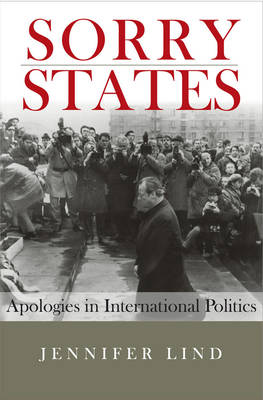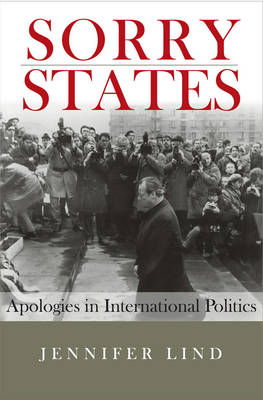
- Retrait gratuit dans votre magasin Club
- 7.000.000 titres dans notre catalogue
- Payer en toute sécurité
- Toujours un magasin près de chez vous
- Retrait gratuit dans votre magasin Club
- 7.000.0000 titres dans notre catalogue
- Payer en toute sécurité
- Toujours un magasin près de chez vous
Description
Governments increasingly offer or demand apologies for past human rights abuses, and it is widely believed that such expressions of contrition are necessary to promote reconciliation between former adversaries. The post-World War II experiences of Japan and Germany suggest that international apologies have powerful healing effects when they are offered, and poisonous effects when withheld. West Germany made extensive efforts to atone for wartime crimes-formal apologies, monuments to victims of the Nazis, and candid history textbooks; Bonn successfully reconciled with its wartime enemies. By contrast, Tokyo has made few and unsatisfying apologies and approves school textbooks that whitewash wartime atrocities. Japanese leaders worship at the Yasukuni Shrine, which honors war criminals among Japan's war dead. Relations between Japan and its neighbors remain tense.
Examining the cases of South Korean relations with Japan and of French relations with Germany, Jennifer Lind demonstrates that denials of past atrocities fuel distrust and inhibit international reconciliation. In Sorry States, she argues that a country's acknowledgment of past misdeeds is essential for promoting trust and reconciliation after war. However, Lind challenges the conventional wisdom by showing that many countries have been able to reconcile without much in the way of apologies or reparations. Contrition can be highly controversial and is likely to cause a domestic backlash that alarms--rather than assuages--outside observers. Apologies and other such polarizing gestures are thus unlikely to soothe relations after conflict, Lind finds, and remembrance that is less accusatory-conducted bilaterally or in multilateral settings-holds the most promise for international reconciliation.
Spécifications
Parties prenantes
- Auteur(s) :
- Editeur:
Contenu
- Nombre de pages :
- 256
- Langue:
- Anglais
- Collection :
Caractéristiques
- EAN:
- 9780801446252
- Date de parution :
- 15-08-08
- Format:
- Livre relié
- Format numérique:
- Genaaid
- Dimensions :
- 165 mm x 240 mm
- Poids :
- 517 g

Les avis
Nous publions uniquement les avis qui respectent les conditions requises. Consultez nos conditions pour les avis.






